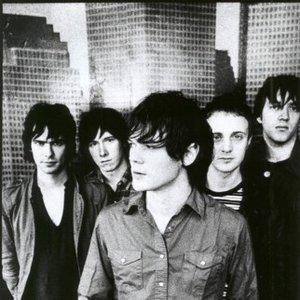The Clown Lyrics - The Clown - Charles Mingus
[Jean Shepherd]
Man, there was this clown, and he was a real happy guy, a real happy guy, he had all these greens and all these yellows and all these oranges bubbling around inside of him. And he had just one thing he wanted in this world, he just wanted to make people laugh, that's all he wanted out of this world, he was a real happy guy
Let me tell you about this clown, he used to a raise a sweat every night out on the stage and just wouldn't stop, that's how hard he worked. He was trying to make people laugh. He used to have this cute little gimmick where he had a seal follow him up and down a step-ladder, blowing Columbia Gem of the Ocean out on a B-flat scale Sears-Roebuck a model 1322 A plastic bugle, a real cute act, but they didn't laugh, well you know, a few little things here and there, but not really, and he was booking out in all these tank towns, playing the rotary clubs, the Kiwanis clubs and the American legion hall; and he just wasn't making it, but he had all these wonderful things going on inside of him, all these greens and yellows and all these oranges, he was a real happy guy, and all he wanted to do was to make these people laugh, that's all he wanted out of this world, to make people laugh, and then something began to grow, something that just wasn't good began growing inside of his head
You know, it's a funny thing. Something began to trouble this clown, you know little things, little things once in a while would happen, that would make that crowed begin to move, but they were never the right things, like for example the time the seal got sick on the stage, all over the stage, the crowd just, just broke out, little things like that. And they weren't suppose to in the act, and they weren't supposed to be funny. This began to trouble him, and it bothered him. And this little thing began to grow inside of him. And all those greens and all those oranges and all those yellows, they just weren't as bright as they used to be. And all he wanted to do was to make that crowd laugh, that's all he wanted to do. There was this one night in Dubuque when he was playing at the rotary club. All these dentists, these druggists, all these postmen sitting around, and they were a real cold bunch, nothing was happening. He was leaving the stage when he stumbled over his ladder and fell flat on his face, just flat on his face. When he stands up and he's got this bloody nose and he looks out at the crowd and that crowd is just rolling on the floor, he's just knocked them flat out, this begins to trouble and even more. He begins to see something, he begins to see something
And right about here things began to change, but really change. Not the least of which our clown changes his act. He bought himself a set of football pads, a yellow helmet with red stripes, hired a girl who dropped a five pound sack of flour on his head every night, maybe twenty feet up. Oh man!, what a bit, that just broke them up every night, but not like Dubuque. And all those colors, all those yellows, all those reds, all those oranges, a lot of gray in there now a lot of blue. And all he wanted was to make this crowd laugh, that's all he wanted out of this world. They were laughing alright, not like Dubuque, but they were laughing, And all the dough started coming in. He was playing the big towns. Chicago, Detroit, and then it was Pittsburgh one night. A real fine town Pittsburgh, you know. But three quarters way through his act, a rope broke, down came the backdrop, right on the back of the neck, and he went flat and something broke, this was it. It hurt way down deep inside, he tried to get up. He looked out at the audience, and man, you should've, you should've, you should've seen that crowd. They was rolling in the aisle. This was bigger than Dubuque. This was bigger than Dubuque. But this was the last one... this was the last one. He knew now. Man he really knew now. But it was too late and all he wanted was to make this crowd laugh, and they were laughing, but now he knew. That was the end of the clown. And you should have seen the bookings come in. Man his agent was on the phone for 24 hours. The Palladium, MCA, William Morris. But it was too late. He really knew now. He really knew. He really knew now. William Morris sends regrets






